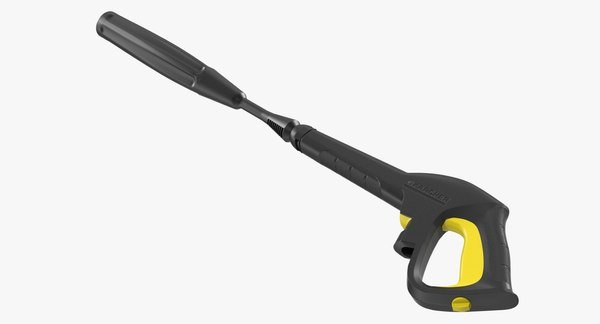Introduction to Cortiez
Cortiez is a medication that belongs to the corticosteroid class, primarily used for its powerful anti-inflammatory and immune-suppressing properties. It’s widely prescribed to treat various conditions like autoimmune disorders, chronic inflammation, and other health issues where the immune system may be overactive. In this article, we’ll dive into the Cortiez medication, how it works, its potential side effects, dosages, and important considerations when using it. If you’re seeking more information on Cortiez treatment or want to know about the Cortiez drug‘s effectiveness, you’ve come to the right place!
Whether you’re already using Cortiez or considering it for your health conditions, understanding its benefits and risks is crucial. This guide will help you make an informed decision about your treatment plan and explain how Cortiez can aid in managing symptoms of chronic illnesses.
What is Cortiez?
Cortiez is a corticosteroid medication designed to reduce inflammation and suppress the immune system. It is used to treat a wide range of conditions, such as autoimmune diseases (like lupus, rheumatoid arthritis), inflammatory disorders (like asthma or eczema), and other conditions where the body’s immune system attacks its own tissues. The Cortiez drug functions by mimicking the effects of cortisol, a hormone produced by the adrenal glands that regulates various bodily functions, including immune response and inflammation.
Cortiez medication is particularly effective in situations where inflammation causes damage to tissues and organs. It reduces swelling, redness, and pain associated with these conditions, making it an essential part of many treatment plans. For example, in autoimmune diseases, where the immune system mistakenly attacks healthy tissues, Corteiz helps to control this overreaction and manage symptoms.
How Does Cortiez Work?
When you take Cortiez, the medication is absorbed into your bloodstream and starts mimicking cortisol’s actions. Corteiz targets specific immune cells and decreases their activity, effectively reducing the inflammation caused by immune responses. This is beneficial in cases where inflammation is chronic and leads to tissue damage. For instance, Cortiez can suppress the immune system in autoimmune diseases, where the body’s defense mechanisms mistakenly attack its own organs and tissues.
The primary mechanism by which Cortiez works is its ability to inhibit the production of inflammatory chemicals in the body, such as prostaglandins. By blocking these chemicals, Cortiez helps reduce symptoms like pain, swelling, and fever, giving patients relief. This is why it is often referred to as an anti-inflammatory medication and is considered one of the most effective treatments for conditions like arthritis, lupus, and inflammatory bowel disease.
In addition to reducing inflammation, Corteiz also impacts the body’s metabolism, helping to manage fluid balance and sodium retention. This is why it’s important to monitor fluid intake and weight while using Cortiez to avoid complications such as edema (swelling).
Cortiez Dosage and Administration
The correct Cortiez dosage is essential for achieving the desired effects without causing harmful side effects. Your doctor will determine the dosage based on your medical condition, age, weight, and response to the medication. Cortiez can be administered orally in the form of tablets or, in some cases, via injection for more severe conditions.
When prescribing Cortiez treatment, healthcare providers typically start with a higher dose to quickly control inflammation and then gradually reduce the dosage. This tapering process is important to avoid sudden withdrawal symptoms, which can occur if Cortiez is stopped abruptly. You should never adjust your Cortiez dosage without consulting your doctor, as improper use can lead to adverse effects or reduced effectiveness.
Common Cortiez drug interactions include those with other immunosuppressants, blood thinners, or vaccines, so it’s vital to inform your healthcare provider about all medications you are taking. Your doctor may need to adjust your Cortiez dosage or monitor you more closely if you are taking other medications that could interact with it.
Potential Side Effects of Cortiez
Like any medication, Corteiz comes with its set of potential side effects. Some people may experience mild side effects, while others may experience more serious reactions. It is important to be aware of these to seek medical attention if necessary. Common Cortiez side effects include:
- Weight gain
- Fluid retention
- Mood swings
- Increased appetite
- High blood pressure
While these are relatively common and usually subside after a few weeks, there are more serious side effects associated with long-term use of Cortiez, such as:
- Osteoporosis (bone thinning)
- Cataracts or glaucoma
- Suppression of adrenal gland function
- Increased risk of infections
For elderly patients, Corteiz side effects in elderly patients may be more pronounced, as they are at higher risk for complications like bone fractures or high blood pressure. It is essential to monitor for any signs of adverse reactions, especially with long-term treatment. If you experience any of these symptoms or have concerns, contact your healthcare provider immediately.
Cortiez and Drug Interactions
Cortiez can interact with a range of other medications, which may affect its efficacy or increase the risk of side effects. Corteiz drug interactions are especially important to consider if you are taking medications for other chronic conditions.
- Blood thinners (e.g., warfarin): Cortiez may increase the effects of blood thinners, increasing the risk of bleeding.
- Antibiotics: Certain antibiotics can affect how Cortiez works in your system, potentially reducing its effectiveness or increasing the risk of side effects.
- Other corticosteroids: Using multiple corticosteroids at the same time can increase the risk of serious side effects such as adrenal suppression or immune system issues.
It is crucial to inform your healthcare provider about all medications, including over-the-counter drugs and supplements, to avoid dangerous Cortiez drug interactions. This ensures your treatment is safe and effective.
Is Cortiez Safe for Long-Term Use?
Long-term use of Corteiz can be highly effective for chronic conditions but requires careful management due to the risk of side effects. Over time, the body may develop a tolerance to Cortiez, and some of the potential risks associated with its long-term use may increase. These include:
- Osteoporosis (bone thinning)
- High blood pressure
- Cataracts and glaucoma
- Weight gain and fluid retention
Your doctor will usually prescribe the lowest possible dose for the shortest amount of time needed to manage your condition. Cortiez is typically used in conjunction with other medications to reduce long-term risks, and you may be regularly monitored for side effects.
If you’re wondering, “Is Cortiez safe for long-term use?”, it’s important to have ongoing discussions with your healthcare provider. They will help you weigh the benefits against the risks and adjust your treatment plan if necessary.
Cortiez in Managing Chronic Conditions
For those with chronic conditions like rheumatoid arthritis, lupus, or other inflammatory diseases, Cortiez treatment can significantly improve quality of life. It helps to reduce the flare-ups associated with these conditions, allowing patients to manage symptoms effectively. In cases of autoimmune diseases, where the immune system attacks the body’s tissues, Cortiez plays a crucial role in suppressing this abnormal immune response.
Patients with chronic conditions must carefully follow their treatment plan and work with their doctor to determine the best course of action. By reducing inflammation and controlling symptoms, Corteiz can help maintain function and prevent permanent damage to the joints or other organs.
Conclusion
In conclusion, Cortiez is a highly effective anti-inflammatory medication and immunosuppressant used to manage a variety of conditions like autoimmune diseases, chronic inflammation, and more. When used correctly under the supervision of a healthcare provider, it can provide significant relief from symptoms and improve overall well-being. However, it’s essential to be aware of potential side effects, Cortiez drug interactions, and the long-term effects of the medication.
Before starting any Cortiez treatment, consult with your doctor to ensure it is the right choice for your specific condition. Regular monitoring is necessary to prevent potential complications and ensure the effectiveness of the treatment.
FAQs
- What is Cortiez used for?
Answer: Cortiez is used to treat a variety of conditions, including autoimmune diseases, chronic inflammation, and other health issues where the immune system is overactive. It helps reduce swelling, pain, and immune responses. - How does Cortiez work in the body?
Answer: Cortiez works by mimicking the action of cortisol, reducing inflammation and suppressing the immune system. It helps alleviate symptoms of autoimmune diseases and other inflammatory conditions. - Can Cortiez interact with other medications?
Answer: Yes, Cortiez can interact with medications such as blood thinners and certain antibiotics. Always inform your doctor of any medications you are taking to avoid adverse interactions. - What are the side effects of Cortiez?
Answer: Common side effects include weight gain, mood swings, and fluid retention. Long-term use can lead to more serious issues like osteoporosis and cataracts. It’s important to be monitored by a healthcare provider. - Is it safe to use Cortiez for a long period?
Answer: Long-term use of Cortiez should be carefully monitored by your doctor. While effective for chronic conditions, it may increase the risk of side effects like osteoporosis and high blood pressure.
















Leave a Reply